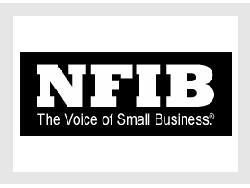Small Business Optimism Slid 1 Point to 99.1 in September
Washington, DC, October 12, 2021-The NFIB Small Business Optimism Index decreased one point in September to 99.1. Three of the 10 Index components improved, five declined, and two were unchanged.
“Small business owners are doing their best to meet the needs of customers, but are unable to hire workers or receive the needed supplies and inventories,” said NFIB chief economist Bill Dunkelberg. “The outlook for economic policy is not encouraging to owners, as lawmakers shift to talks about tax increases and additional regulations.”
Key findings include:
* The NFIB Uncertainty Index increased five points to 74.
* Owners expecting better business conditions over the next six months decreased five points to a net negative 33%.
* Fifty-one percent of owners reported job openings that could not be filled, a 48-year record high for the third consecutive month.
* A net 42% of owners reported raising compensation, a 48-year record high.
* As reported in NFIB’s monthly jobs report, a record 51% of small business owners (seasonally adjusted) reported job openings they could not fill in the current period, up one point from August. A net 42% of owners (seasonally adjusted) reported raising compensation, up one point from August and a 48-year record high reading.
A net 30% of owners plan to raise compensation in the next three months, up four points from August’s record high reading. Twelve percent of owners cited labor costs as their top business problem and 28% said that labor quality was their top business problem – both record high readings.
Fifty-three percent of owners reported capital outlays in the next six months, down two points from August and historically a weak reading. Of those making expenditures, 37% reported spending on new equipment, 21% acquired vehicles, and 12% improved or expanded facilities. Six percent of owners acquired new buildings or land for expansion and 10% of owners spent money for new fixtures and furniture. Twenty-eight percent plan capital outlays in the next few months, down two points from August and one point below the 48-year average.
